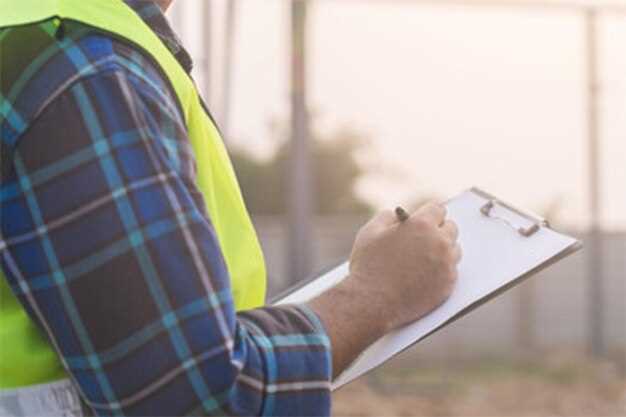
In the world of property restoration, the importance of an accurate appraisal cannot be overstated. Whether you are dealing with damage from water, fire, or mold, an effective restoration process hinges on a clear understanding of the value of the affected property. A professional appraisal provides essential insights that help in estimating the costs of restoration, ensuring that you approach the repair process with a comprehensive plan and adequate budget.
However, determining when to engage an expert for a restoration appraisal can be challenging. Many property owners may feel tempted to assess the situation themselves, relying on general knowledge or online resources. While DIY approaches can sometimes yield satisfactory results, they often lack the depth and accuracy that a certified professional can provide. In situations where significant financial investment is required, or where the potential for loss is substantial, seeking expert guidance becomes not just advisable, but necessary.
This article will delve into the critical indicators that signal the need for a professional appraisal in restoration cases. From understanding the complexities of the damage to the implications of insurance claims, recognizing when to hire an expert is a crucial step toward ensuring that property restoration efforts are both effective and economically sound.
Identifying Signs that Indicate the Need for a Professional Appraiser

When engaging in a restoration project, recognizing the right time to hire a professional appraiser is crucial for ensuring accurate value assessments. One clear indicator is the complexity of the restoration. If the project involves unique or highly specialized items, an expert’s insight can prevent miscalculations that may arise from a lack of specialized knowledge.
Another sign is when significant funds are at stake. Whether it concerns an antique piece, historical artifact, or a structure requiring restoration, investing in a professional appraisal can safeguard your investment and provide peace of mind. This becomes especially important if you are considering insurance, resale, or renovation funding.
Emotional attachment often complicates personal valuations. If sentimental value clouds your judgment, hiring an appraiser can provide an objective perspective. Professionals are trained to distinguish between emotional worth and market value, ensuring decisions are based on solid data rather than personal feelings.
Moreover, if you’re dealing with potential legal issues, such as inheritance disputes or estate settlements, a professional appraisal can provide clarity and serve as crucial documentation. Courts often require formal appraisals to resolve disputes fairly, making expertise indispensable in these situations.
Lastly, if you are planning significant renovations, understanding the current value of the property before making any changes is essential. A professional appraiser can offer insights that drive informed decisions on how best to enhance value during restoration efforts.
Understanding the Impact of Restoration Value on Insurance Claims
The restoration value plays a crucial role in the insurance claims process, particularly when it comes to properties damaged by unforeseen events such as natural disasters or accidents. This value reflects the cost that is required to return a property to its original condition, influencing the compensation that policyholders receive from their insurance providers.
When calculating the restoration value, various factors come into play, including the current market conditions, the extent of the damage, and the quality of materials that would be used for repairs. Insurers rely on accurate appraisals to determine how much the restoration will cost, which can significantly impact the final claim amount. An inaccurate assessment can lead to underpayment or disputes between the property owner and the insurer.
Moreover, understanding the relationship between restoration value and insurance claims is essential for policyholders. It enables them to advocate effectively for their needs and ensures that they receive a fair settlement based on realistic restoration costs. Having documentation from qualified experts can strengthen a claim, providing a clearer picture of the necessary expenses and justifying the requested amounts.
Ultimately, recognizing the implications of restoration value is vital for navigating the complexities of insurance claims. It empowers property owners and contributes to more informed decisions when engaging with their insurance policies and claims process.
Choosing the Right Expert: What Qualifications to Look For

When seeking an expert for restoration appraisal, it’s crucial to select someone who possesses the right qualifications. The value of an accurate appraisal can significantly impact your restoration project, affecting everything from insurance claims to resale opportunities.
Here are key qualifications to consider when choosing an expert:
- Professional Certifications: Look for experts who have recognized certifications in restoration appraisal, such as those offered by the American Society of Appraisers or the International Society of Appraisers. These certifications signify a commitment to industry standards.
- Relevant Experience: Assess the expert’s background in restoration work specifically. An individual with hands-on experience in similar projects will have a better understanding of value assessment in context.
- Specialization: Restoration can encompass various fields, including art, antiques, and historic buildings. Ensure the expert specializes in the area relevant to your project to guarantee an informed valuation.
- References and Reviews: Request references or look for reviews from previous clients. Positive feedback can provide insights into the expert’s reliability and expertise.
- Continuing Education: Ensure the expert is committed to ongoing education. Restoration methods and valuation techniques evolve, and an expert who stays updated can provide the most accurate appraisals.
In conclusion, choosing the right expert for restoration appraisal involves careful consideration of their qualifications. Prioritizing professional certifications, relevant experience, and specialization will help ensure that you receive a valuation that reflects the true worth of your restoration project.




